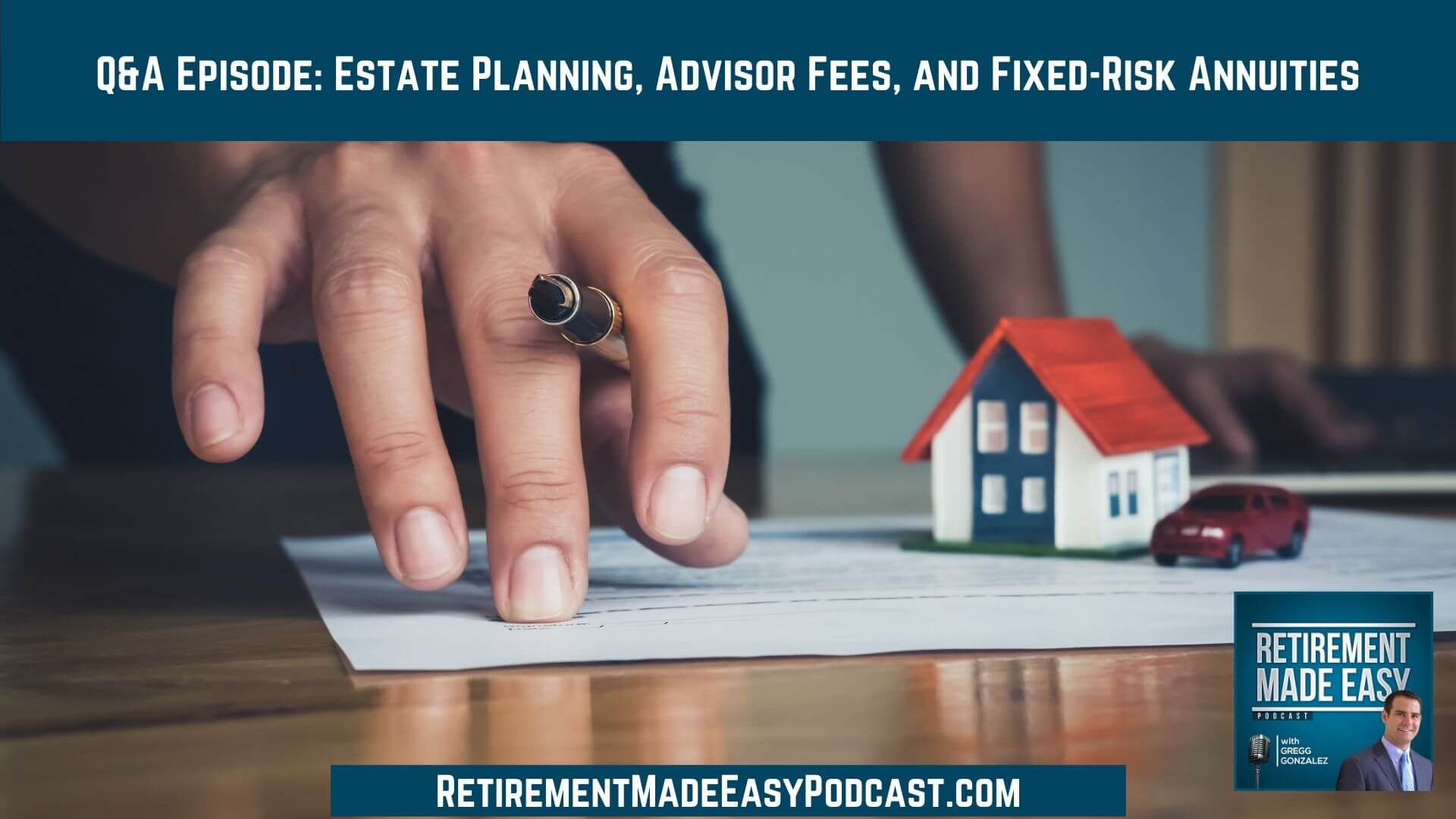
Listener questions have been pouring in these last few weeks! So in this episode of Retirement Made Easy, I’ll dive into a few more questions that have rolled in. How do advisors get paid? What can you do to help your parents with estate planning to avoid probate court after their deaths? Do no-risk no-fee investments exist—and are they worth it? I answer these questions and more in this episode. Check it out!
You will want to hear this episode if you are interested in…
- [4:04] Questions we’ll cover in this episode
- [6:26] Question #1: How do advisors get paid?
- [10:43] Question #2: How to help your parents with estate planning
- [16:53] Question #3: Do no risk no-fee investments exist?
- [19:08] Question #4: Why I love Roth 401ks
How do advisors get paid?
Some advisors only make money by offering investment products where they make a commission. I feel like this is a conflict of interest—these advisors may push you to invest in something that’s not in your best interest.
Other advisors charge hourly. For example, I charge $200 an hour for financial planning services. Some advisors use different methods than others. Another way—and how I’m primarily compensated—is a flat annual fee that comes out of the investment accounts and is broken up quarterly. A common percentage can be 1–1.5%.
How to help your parents with estate planning
How do you help your parents get their ducks in a row so you and other family members don’t end up in probate court? You may be heading into retirement yourself and are helping care for your aging parents. So what can you do to get your parents set up properly? Here are some things to make sure your parents have:
- A healthcare directive/power of attorney: If they can no longer make healthcare decisions for themselves, someone needs to be in place to help make decisions (it can be multiple people).
- Financial power of attorney: If your parents need help paying bills, filing tax returns, etc. the power of attorney can write checks on their behalf. It needs to be someone that’s trusted to handle financial decisions.
Probate court can be a mess, so how can you avoid it? It depends on the asset. If it’s a vehicle, it’s passed by title. Make sure the vehicle is assigned to be given to the beneficiary using a Transfer on Death (TOD) form. Brokerage accounts can be transferred similarly. IRAs, 401ks, Roth IRAs, etc. have beneficiary designations to bypass probate. Listen to hear some other strategies for transferring assets.
Do no risk no-fee investments exist?
A listener heard an ad on the radio for a “No-risk no-fee investment opportunity with market-like returns.” The ad is likely about a fixed-risk annuity. What they don’t tell you is that it can be a commitment of 5–15 years where your money is completely locked up. If it sounds too good to be true, it likely is.
Plus, how are the companies making money? You may get a percentage of the return but nowhere near what you would if you’d just invest in the index itself. The people that own these don’t often realize what they’re buying into. Someone only needs an insurance license to offer these index annuities.
Why I love Roth 401ks/IRAs
One of my listeners doesn’t have the option of a Roth IRA for their 401k and wants to know what the big deal is. A Roth option is becoming more common and hopefully, every 401k will offer it someday. Imagine investing in whatever you want—mutual funds, stocks, ETFs, CDs, etc. If it’s in a Roth IRA/401k, it will grow tax-free forever. There is nothing better than tax-free growth.
Connect With Gregg Gonzalez
- Email at: Gregg@RetireSTL.com
- Podcast: https://RetirementMadeEasyPodcast.com
- Website: https://StLouisFinancialAdvisor.com
- Follow Gregg on LinkedIn
- Follow Gregg on Facebook
- Follow Gregg on YouTube



